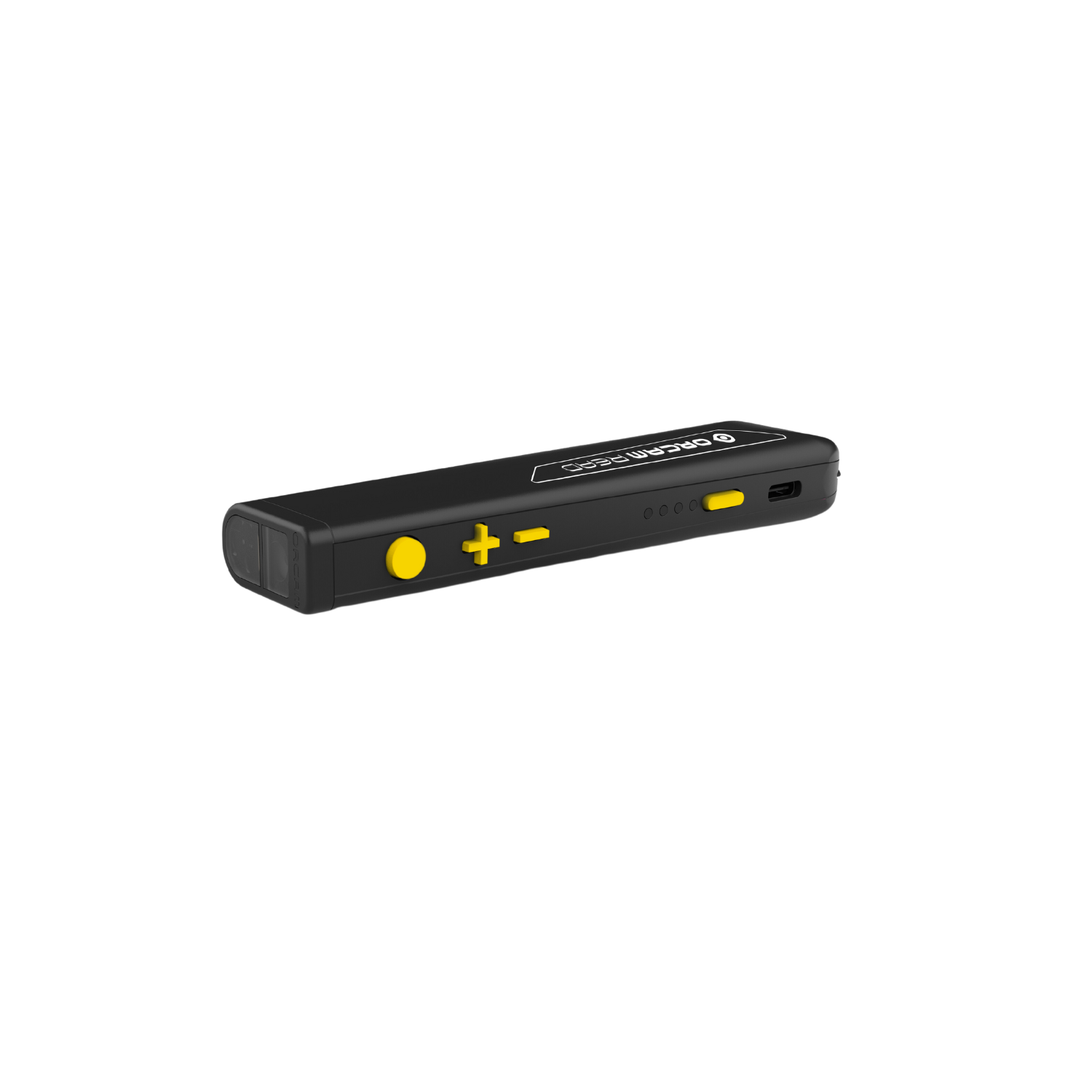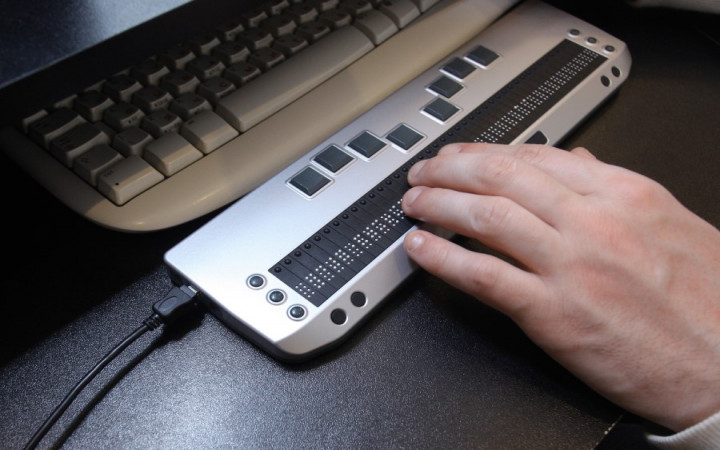Empowering Independence With Assistive Modern Technology for the Blind
The assimilation of assistive technology into the lives of individuals with aesthetic disabilities represents a considerable advancement in advertising independence and self-sufficiency. From innovative screen readers to advanced clever walking canes, these devices not just improve daily navigation and interaction but also encourage customers to engage meaningfully in numerous aspects of life. As we check out the myriad benefits and real-world applications of these modern technologies, it comes to be crucial to check out the hidden aspects that add to their performance and the capacity for future growths in this important area.
Introduction of Assistive Modern Technology

The development of assistive innovation is based in principles of inclusivity and empowerment. Technologies in software application, hardware, and sensory improvements supply customers with alternatives tailored to their details needs. From display viewers that convert text to speech, to responsive tools that convey information via touch, these tools transform the means people involve with their environments.
Along with functional applications, assistive innovation fosters higher social incorporation and involvement in different industries, consisting of education and employment (OCR devices for the blind). As research and growth continue to evolve, the capacity for assistive modern technology to better boost the lives of visually damaged individuals continues to be encouraging, leading the way for a much more equitable society where every person can grow
Sorts Of Assistive Tools
A range of assistive devices have actually arised to sustain individuals with aesthetic problems, each made to meet particular needs and boost day-to-day performance. These gadgets vary from low-tech remedies to modern technologies, providing diverse options for users.
Low-tech tools include magnifiers and large-print materials that help in reading and writing. Braille devices, such as Braille styluses and slates, allow tactile analysis and communication. Positioning and mobility aids, like white canes, help users navigate their atmosphere safely.
On the higher end of the range, electronic zoom systems and screen viewers offer considerable support. Digital magnifiers enable individuals to increase the size of message and photos on screens, while display viewers transform digital content into synthesized speech, promoting accessibility to info on computer systems and smart devices.
Mobile phone applications additionally play a vital duty, offering functions like text recognition and navigation help. Wearable modern technology, such as wise glasses furnished with enhanced reality, is emerging as a promising device to enhance situational awareness.
Benefits of Assistive Modern Technology
The assimilation of assistive innovation substantially enhances the lifestyle for individuals with aesthetic problems. These innovations empower users by promoting freedom, allowing them to navigate their environments better and carry out everyday jobs with greater ease. Display viewers and magnifying software program permit people to accessibility electronic info, promoting instructional and specialist chances that may have formerly been out of reach.
Additionally, assistive devices such as wise walking canes and GPS applications offer real-time navigation help, boosting mobility and safety and security. This raised autonomy not just boosts self-confidence yet additionally encourages social involvement, allowing individuals to participate more fully in their neighborhoods.
Assistive technology additionally assists in communication, helping users link with others via voice recognition and text-to-speech applications. This capacity is essential for preserving relationships and accessing crucial information.
Additionally, the customization options readily available with lots of assistive modern technologies ensure that customers can customize devices to their certain needs, further improving functionality and efficiency. In general, the advantages of assistive technology for people with aesthetic disabilities are extensive, promoting an extra inclusive society where everybody can pursue their aspirations and objectives.
Study and Success Stories
Highlighting the transformative effect of assistive modern technology, various instance researches illustrate exactly how people with visual disabilities have actually successfully incorporated these tools right into their lives. One compelling instance includes an go to my blog university student who used display analysis software application to navigate on the internet resources and academic products effectively. This technology not only promoted her education and learning however additionally improved her confidence in taking part in discussions and group tasks.
One more situation research features an expert who utilizes a smart device application developed for navigating and object acknowledgment. By using this application, he has actually gained back autonomy in both his personal and work settings, permitting him to commute individually and engage with coworkers better.
Furthermore, a retiree shared her experience with braille e-readers, which allowed her to access a vast selection of literature and remain gotten in touch check this with her area through publication clubs.
These success stories highlight the crucial role of assistive innovation in fostering freedom, improving lifestyle, and advertising social combination for people with aesthetic problems (Screen readers for the blind). By welcoming these ingenious devices, individuals can get rid of challenges and confiscate possibilities that add to their professional and personal fulfillment

Future Trends in Assistive Innovation
Development in assistive innovation is positioned to redefine the landscape of support for individuals with visual disabilities. Emerging trends stress the combination of fabricated intelligence (AI) and machine understanding, which enhance the functionality of gadgets that aid with navigating and details ease of access. AI-driven applications are now qualified of analyzing aesthetic information in real-time, enabling individuals to engage with their setting more individually.
Moreover, the growth of wearable modern technology is advancing rapidly. Smart glasses equipped with augmented truth (AR) can provide audio descriptions of environments, changing exactly how customers interact with public areas. These gadgets not just advertise freedom however additionally foster social inclusion.
In Addition, the Web of Things (IoT) is making homes smarter, enabling smooth connection between assistive devices and daily home appliances. This connectivity encourages users by enabling voice-activated controls and automatic responses tailored to private needs.
Final Thought
To conclude, assistive technology plays a crucial function in equipping individuals with visual problems by boosting their self-reliance and engagement with their surroundings. The diverse range of tools and applications readily available not just helps with navigating and communication however also promotes social combination and chances for individual and specialist development. As improvements proceed in this area, the possibility for boosting the lifestyle why not try here for those with aesthetic problems will certainly increase, promoting higher autonomy and empowerment.

Comments on “AI-Powered Visual Aids: Enhancing Autonomy for Blind Users”